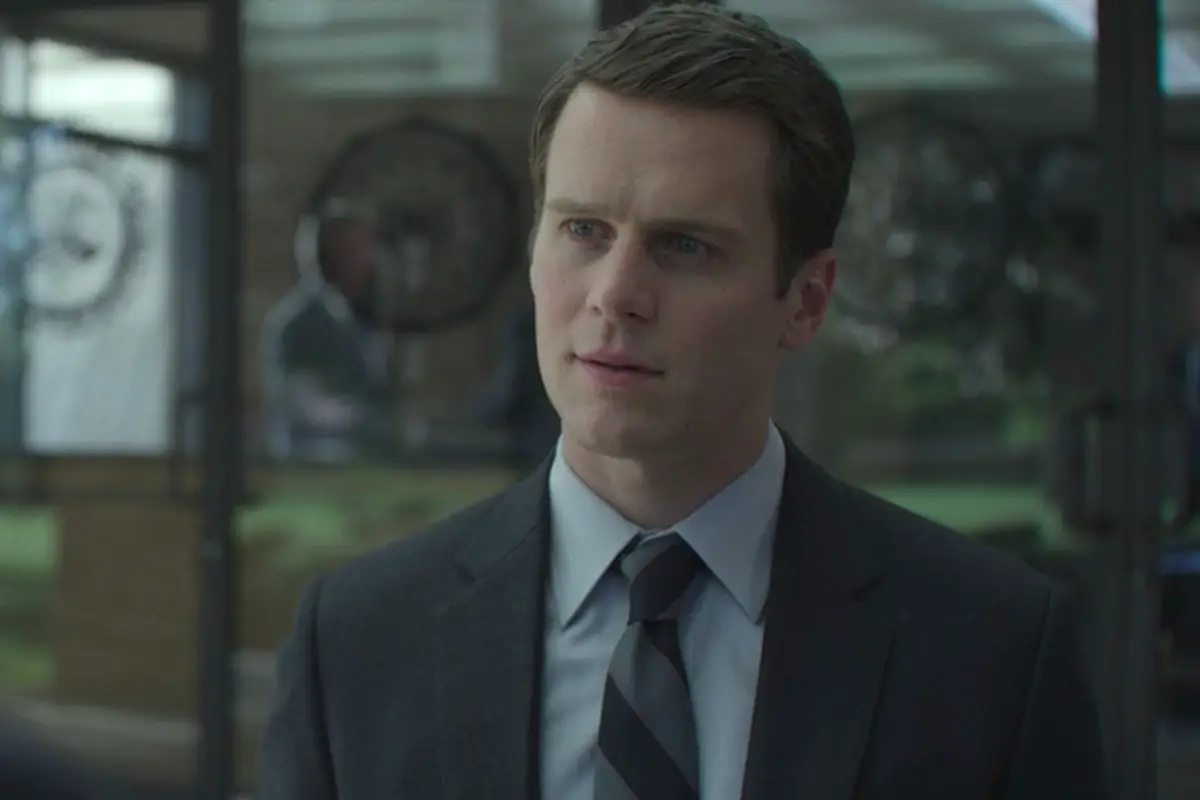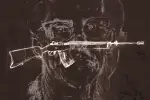Well it’s about time the second season of “Mind Hunter” was released. After the premiere of the first season in 2017, I had to wait two years for the second season, and boy, let me tell you, “Mind Hunter” Season 2 was not at all what I was expecting. I, and other “Mind Hunter” fans, were faced with a new theme, new storyline and unexpected character development. Don’t get me wrong, the season is worth watching, but do not expect the usual flavor you received from Season 1. Let’s start with the focus of the show: the theme.
Brace Yourself. There’s a Storm a’Comin’
All right, so rewind back to Season 1. The main theme of “Mind Hunter” was analyzing the psychology of caught serial killers. Main characters Holden Ford and Bill Tench create the first ever and what is now known as the Behavioral Science Unit at the FBI. Mind you, this season took place back in the ‘60s, so America never really heard or experienced serial killers until, well, later in that decade, hence the upstart of a new unit.
The idea behind the Behavioral Science Unit was to understand and to build a profile of the mentality of serial killers. This idea sounded far-fetched at the time because most of the FBI and law enforcement wanted simple, conservative solutions for putting away serial killers. In other words, is their evidence to base the accusation on? Nobody at the time wanted to convict a person based on mentality alone, but little did everyone know that the Behavioral Science Unit would lead the field in creating psychological profiles.
Anyways, in Season 1, Ford and Tench are joined by Wendy Carr, a professor who has interests in psychology and white collar crime. Together, the trio start the Behavioral Science Unit. Their mission was to collect data from various subjects. They interview Ed Kemper (the “Co-ed Killer”), Montie Rissell, Jerry Brudos and Richard Speck. From these serial killers, Tench, Ford and Wendy learn that serial killers commit their devious actions out of sexual desire, gratification, control, power and more. Awesome, I know.
Fast forward two years later to our time and we are finally presented with Season 2. The best of the serial killers out of the lineup are David Berkowitz (“Son of Sam”), William Pierce Jr., William Henry Hance, Elmer Wayne Henley, Wayne Williams and best of all, Charles Manson. So, now you are probably wondering, “When the hell is she going to get to the storm a’comin’ reference?” Well, here you go.
All right, so the theme of Season 2 is how to catch an active serial killer using only data that is solely based on apprehended serial killers. Now you are probably thinking, “That’s it?” Settle down: I’m getting to the main point.
Let’s do some brain activity and think. Season 1 presents us with a genius idea to profile serial killers based on their psychology. Season 2 presents us with the previous season’s data on active serial killers. See the problem? The writers’ intentions were to show that, though Season 1 made the trio’s plan seem fool-proof, it’s not. Womp, Womp.
How do you catch a serial killer that is constantly learning and adapting to the methods of the FBI, someone who is perfecting their fantasy to the point where they avoid getting caught? I told you Season 2 had unusual flavor. And you can see the struggle of catching possible serial killer Wayne Williams. Tench and Ford struggle with data that was made for serial killers who hiccuped, but what if you had the perfect serial killer?
This theme is also intertwined with the new storyline, which is focused on the Atlanta child murders and the BTK killer, whom we see travel down the path of becoming a serial killer but does not actually become one yet. I’m hoping for a Season 3 because of the anticipated development of this killer.
Next Up, Character Development
I will start off with the most unexpected and well-developed character in “Mind Hunter”: Carr. In the first season of the show, Carr is presented to us as a black-and-white thinker, whose sole aim was to make history and ultimately get s—t done. However, in Season 2, Carr indirectly comes out as a lesbian, which at the time was a big no-no.
Aside from coming out and hooking up with a chick at a bar, she goes into the field of profiling because of negative reinforcement from the new chief and actually uses her sexuality as an advantage in interviewing the serial killers.
Also, as an important note, most of the serial killers in Season 2 were gay. I believe the purpose of showing homosexual killers was to fully portray Carr as a lesbian and to show her genius ability in using it as a strength and as common ground when interviewing the murderers. Furthermore, we are also exposed to more emotion from Carr. We see her take initiative in her personal and work life rather than just sitting back.
Next up is Chief Gunn. There is not much to say about his character development, but there is more to say about his influential role in further developing the other main characters. Chief Gunn is the first boss to fully support and believe in the Behavioral Science Unit. His character helps the morale of the other characters.
After Chief Gunn, we have Agent Ford. At the end of Season 1, Ford has an extreme panic attack. In Season 2 of the show, we are presented with Ford and his “unknown” diagnosis. The doctor claimed his stress was causing the anxiety. What better way to treat anxiety than with Valium? Yup, Valium. You’ve got to appreciate the ‘60s and ‘70s for what they were.
Anyway, so after the diagnosis scene of Ford, I was expecting the whole season to be dedicated to Ford’s anxiety, but much to my pleasure, it was not. I am elated that the writers did not focus on Ford’s anxieties, but there are scenes in which there is tension surrounding the chief, because we do not know if his mentality is going to crash and burn. Funnily enough, Ford is one of the more stable characters of the season.
Finally, Tench. Tench’s 7-year-old kid assists in the murder of a toddler, but the wife is in denial that it was intentional and breathes down Tench’s neck about how he needs to be a better father. While all that intrigue is happening, Tench is with Ford in Atlanta four days out of the week trying to solve murder cases of children. How serendipitous.
What is interesting to note is that, much like the other characters in the show, Tench shows unexpected development, but if it’s for the best, I’m not so sure. When Ford and Tench interview Manson, Tench resonates most with the mirror effect out of everyone in the show. The mirror effect, as I am sure you are wondering, is the mirrored personalities of someone or something that we do not wish to acknowledge as ourselves. In other words, we refuse to acknowledge our dark side.
In this case, Tench loses control of himself when he talks with Manson because he is facing a side of himself brought on by Manson’s words that he does not wish to face. I must applaud Tench’s efforts in keeping his sanity while being confronted with darkness.
There you have it: a “Mind Hunter” Season 2 review. Though the season is quite different from the first one, I highly suggest watching it, as I feel it will be vital for understanding a possible Season 3, and because it is awesome. The product you have is unexpected character development mashed with a new theme and storyline. If you are wondering how one catches a fantasy, watch Season 2 on Netflix to find out.
















